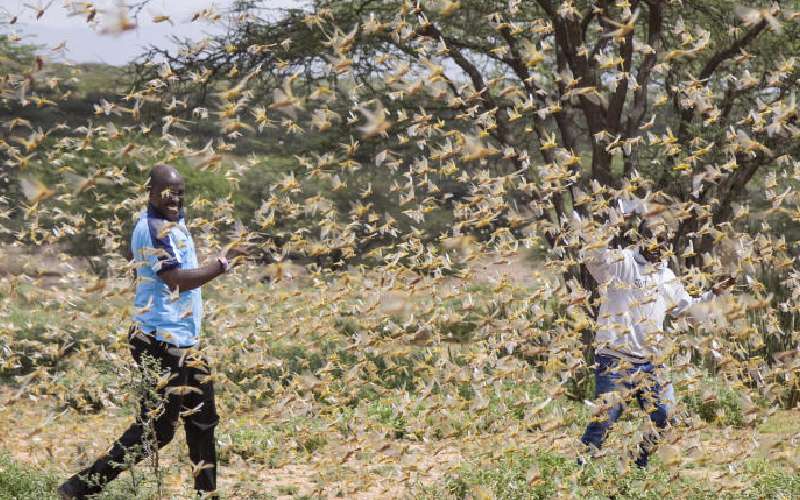×
The Standard e-Paper
Home To Bold Columnists

Samburu residents try to scare away a swarm of desert locusts.[File,Standard]
For decades, it has been perceived that the solution to food insecurity in Africa is increased agricultural productivity. While this is part of the solution, it is not the entire remedy. Without increasing resilience through integrated agricultural markets for cost-effective and nutritious foods, the continent’s food value chains continue to be broken.